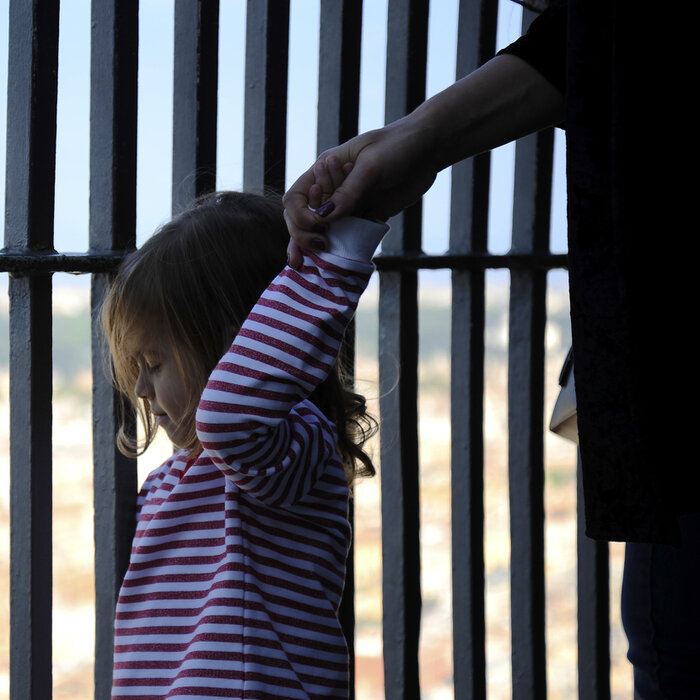Throughout my incarceration, I’ve heard this statement so many times: “Boy, I don’t know how you guys do all that time…I’d go crazy.” My reply is always something like, …”I don’t know. We just do it…” Because honestly, there is no real answer to that.
But what I’ve come to realize is that we do it by “bidding.” We condition/program ourselves to do the things that keep us content and not focused on our reality — doing time, day after day, until we reach a point when we are basically automatons, living on auto pilot.
For instance, right now we are on institutional lockdown, stuck 24 hours a day in our combination cell-bathrooms, with only a 10-minute shower three times a week as a reprieve/time out. Unconsciously, I’ve established a schedule; in other words, I’m bidding. I get up each day at the same time. I work out. I listen to a program on the radio/TV (if the staff have turned it on). Then I take a nap. By breaking up my days in this fashion, doing the same things at the same times, the days begin to run into one another and fly by. That is how we do all of this time.
People bid in different ways, and each person’s bid is unique. Some of us go to the law library constantly to fight for our freedom. Some of us spend our days reading, studying and learning. Others bid by becoming deeply religious, while others watch TV (particularly sports). Then there are the hustlers — the ones who work in the kitchen and market purloined food, sell homemade candy or arts and crafts, use/sell drugs, gamble on sports, etc. We all bid in our own ways. And that allows us to do all this time
The thing is this though: While we are bidding, life on the outside is passing by and we don’t always realize it, since we are caught up in our own, surreal world. That is, until something smacks us in the face and jars our reality. It’s like you were 6 years old when you came into jail, and then suddenly you’re 25 and a family member sends a photo of a girl from the neighborhood who is so beautiful, but you thought she was still a child. Or when you talk to your 25-year-old cellmate and realize with a shock that not only is he the same age as your son, but that you were locked up before he was born. I just had one of those moments for real when I saw my son for the first time since he was 2 years old.
In a previous post, I wrote about my brothers, who all lived the “life” and went to prison; the impact of that on me; and why I now want desperately to teach my son to follow a different path. On Father’s Day this year, I received my first visit since I began serving my 40-year sentence nine and a half years ago. Seeing my son for the first time since he was a toddler really made me realize what I’ve been missing and that doing my time is “real.” By getting so caught up in my bid, I lost track of how much time had passed in his life. Sitting with my son, my child’s mom and my goddaughter — listening to them and watching how they have matured — made everything so much more real and put my mind, energy and body into overdrive, thinking about how to try to find a way out of here.

The visit meant so many things to me. It brought a smile to my face and tears to my eyes. It was sad and sweet. It filled me with boundless hope, while killing me on the inside. Imagine: My son asked me, “How much longer do you have in jail?” When I told him, “Until the judge and God think I’ve done enough time,” his response was, “Well, how much time do you have do to learn your lesson?” That question pierced me in the heart. How could I tell him that I had received a sentence of 40 years and that he may be both a dad and a grandfather by the time I get home? How could I explain it to him that I had learned my lesson and was more than ready to come home and be a law-abiding, productive citizen, but it didn’t matter? To top it off, my goddaughter asked if she could whisper something in my ear, then did so: “Can I call you my daddy?” (Her father was killed.)
How do I respond to these questions? I love these kids so much, it kills me. They deserve the best; they deserve a father out there with them. I have to get out of here!
So, I will now ask my own questions: How much time do I have to do before the system realizes and is willing to acknowledge that I’ve learned my lessons? How much time is enough?
I have changed. I’ve been rehabilitated: I earned my GED, have tutored others so they can get theirs, taken various classes, used my time wisely. I think I have done enough time. Yet still, I may never get the chance to do the one thing I yearn to do: be an active father.




